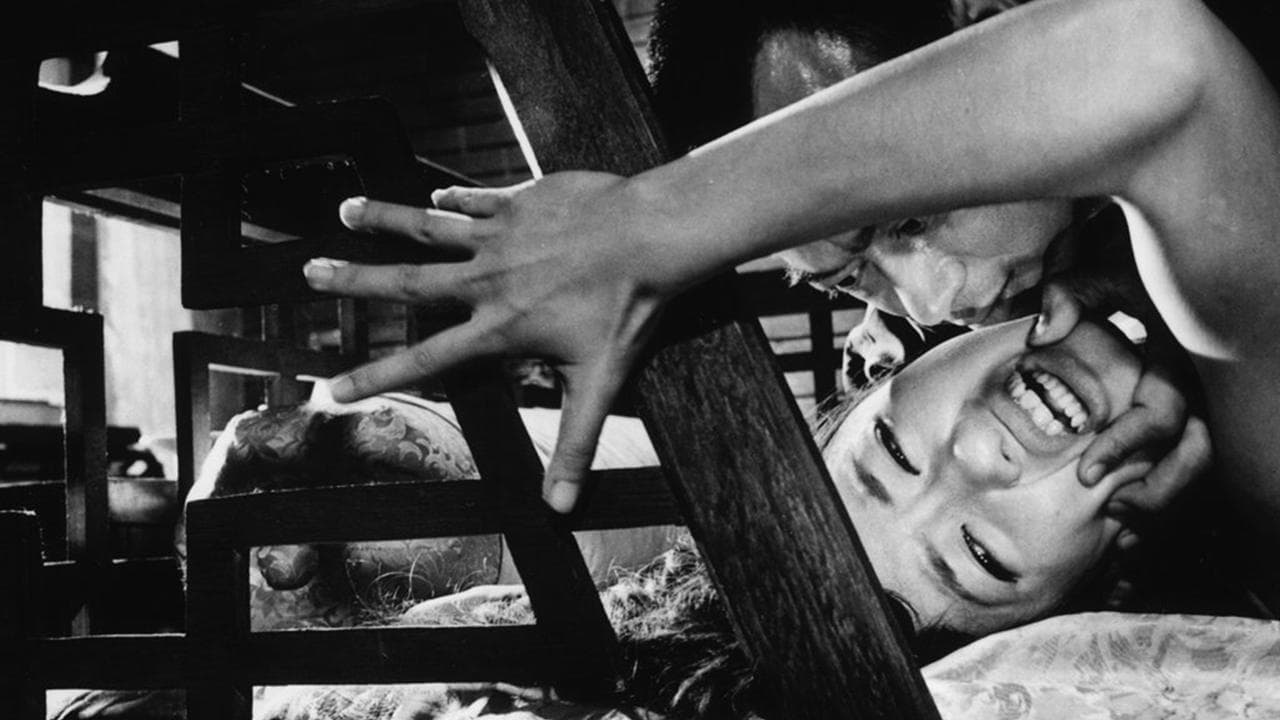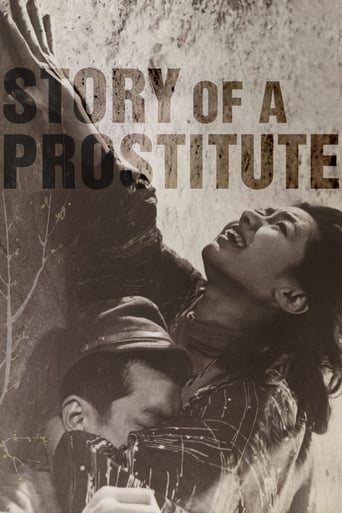

SERIOUSLY. This is what the crap Hollywood still puts out?
... View MoreGood idea lost in the noise
... View MoreAlthough it has its amusing moments, in eneral the plot does not convince.
... View MoreThe movie turns out to be a little better than the average. Starting from a romantic formula often seen in the cinema, it ends in the most predictable (and somewhat bland) way.
... View MoreViewed on DVD. Subtitles = three (3) stars. Director Seijun Suzuki's Jidai-Geki genre anti-war film set during the second Sino-Japanese War (in mid Twentieth Century) is a ludicrous photo play attempting to illustrate the ludicrous nature of war. The plot is about a professional sex worker (who is not a "comfort woman") in Northern China pursuing (literally--all over the screen including in the middle of military maneuvers and in the midst of battles!) a Japanese mid-ranking soldier (who is a reluctant lover at best). This is a prostitute who works out of a Japanese brothel (which seems to be worker owned and operated) consisting of about a dozen women. They are supposed to be the only sex workers in the region with each servicing, perhaps, up to a hundred military clients per 24 hours! The Chinese fighters are depicted as the "good guys" and the Japanese mostly as brutes (the exceptions being those who desert and those who will not execute the prostitute's lover who had returned (he was actually dragged by the hooker through war zones) to base camp as an injured combatant instead of following military protocol and killing himself in the field when wounded). After about 90 minutes of this repetitious nonsense, the protagonists engage in the "traditional" lover's joint suicide (which does not come soon enough for bored viewers who are still awake!). The Director does not appear to be in control of his actors and actress--they seem to have been given Carte Blanche! Whatever the reason, acting is across-the-board terrible or nonexistent--it's amateur-night all round. Leading actress Yumiko Nogawa delivers a 1.5 dimensional character with back-and-forth "acting" that ranges from phony sobbing to screaming. Cinematography (wide screen, black and white) is okay, but some scenes are on the dark side (which subtracts rather than adds to the drama when the viewer really needs to see what is going on---starting with the opening credits). Interior scene continuity is sometimes missing. The back lot exterior set looks patently phony. Special effects (mostly explosions and a bit of rear-screen projection thereof) are good. Subtitling is incomplete. Some signs are not translated. Almost all singing (of which there is quite a lot and often integral to the story line) is not subtitled. As usual, Criterion's DVD menu makes it difficult to easily determine if subtitles are turned on or off---seems to be a company tradition! Aggressive avoidance recommended. WILLIAM FLANIGAN, PhD.
... View MoreAfter being rejected for marriage by her lover, a prostitute named "Harumi" (Yumiko Nogawa) travels to a military outpost deep inside Manchuria to work in a brothel servicing soldiers in the Imperial Japanese Army during World War II. While there she meets an officer by the name of "Narita" (Isao Tamagawa) who treats her with contempt but is also quite possessive. Not long afterward she meets his orderly "Shinkichi Mikami" (Tamio Kawaji) who she quickly falls in love with. Unfortunately, Mikami is hesitant at first to return her affections because he knows that would make Narita furious. Meanwhile, the war rages on all around them. Now what I liked about this movie was the manner in which it showed the dark side of war. However, that also proved to be a weakness of sorts because at times it got too bleak. Likewise, the over-acting, typical of many Japanese movies, was a bit too much at times as well. In any case, although it's clearly a work of fiction there were some scenes which were based on historical experiences by the writer and because of that I found this to an interesting movie from an historical perspective. All things considered then, I rate it as slightly above average.
... View MoreThere's a strong indictment of Japanese militarism (and, by extension, male brutality towards women) in this melodramatic story of an army whore following the Emperor's troops into Manchuria. The strict code of military etiquette allows the long-suffering protagonist to serve enlisted men by day and only officers at night, one of whom (a sadistic, possessive martinet) becomes insanely jealous after she falls in love with a common foot soldier. The scenario often descends to histrionic overkill; at one point the heroine is seen running unscathed through a mortar and machine gun torn battlefield to be reunited with her lover, just before the two of them are captured by enemy troops. But director Seijun Suzuki compensates for the occasional over-plotting with some surprising stylistic tics and flourishes, although the ultimate effectiveness of the film has been sadly compromised by a deteriorated print, with often illegible subtitles. (Note: this was at a screening well before the advent of DVD technology, in Berkeley California back in the late 1980s)
... View MoreMost likely the closest Suzuki ever got to making a prestige film. It probably wasn't viewed as such at the time, as it was a remake of a movie called Escape at Dawn that was generally considered a classic at the time (it was scripted by Akira Kurosawa and directed by Senkichi Taniguchi in 1950). Story of a Prostitute seemed like a much more lurid version of the older film. Both were anti-war pictures, but Escape at Dawn was romantic and tragic. Story of a Prostitute is harsh and cynical. Its scenes are often comic, which clashes with the standard view of war. In an interview on the new Criterion disc, Suzuki, a veteran himself, says that he found a lot of black humor and absurdity in his wartime experience. All three of WWII-themed films I've seen from him, which cover the pre-war (Fighting Elegy), the actual war (Story of a Prostitute), and post-war (Gate of Flesh) periods all incorporate some level of absurd, black comedy. The three films actually make a good trilogy (the rest I've seen are all yakuza or crime films). Story of a Prostitute is a very powerful anti-war film, though it is lurid and not nearly as powerful as something like, say, Kobayashi's The Human Condition. Yumiko Nogawa, who also starred in Gate of Flesh, gives a fantastic performance. But it is, as usual, Suzuki's supreme visual skills in black and white in this instance that make the film a stunning and memorable experience. His artistic imagination in cinematographic matters is nearly unsurpassed in the entire realm of cinema.
... View More